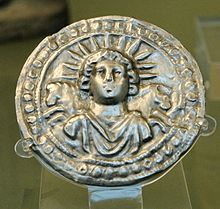Today, we often ask or wonder whether it is really possible to travel through the 4th dimension. We've all seen films, etc. where the plot is set some way off in the future, and inevitably from this there will be a scene about time travel. Many interpret a time travelling machine as a box of some sort, with buttons and a lever to take you to your specific date.
Yet is there any truth behind all this? Scientists and physicists often get into heated debates about such matters. But this is not why I'm here, so JAFHR, if you want a debate, then read no further.
The reason why I'm here then, is to explain my views of such matters. I have personally promised to JAFHR that when I build a time machine, he can have the first human go on it.
Anyway, back to my views then. First, and crucially, I deem it very nearly impossible to time-travel backwards, i.e. to the past. The very tiny part of me that thinks it is possible only thinks that we can go back for at most two or three seconds into the past. In my views, there are to ways to go back, but neither will be able to go back far enough. The first reason is this. It has been scientifically proven that time is affected by gravity. A clock capable of keeping time extremely accurately is also affected by this. So then if you put one clock underneath another, each exactly synced with each other, each atomic, and losing only nanoseconds of time in millions of years, the one underneath will be about a second behind the one on top after billions and billions of years. Then, this form of travelling backwards is practically useless as after waiting for so long, it is only possible to go back seconds.
The other form of travelling backwards involves a substance/thing/theorem that while has strong arguments to prove its existence, isn't actually something that we know and have seen for certain. As explained by Kjartan Poskitt- you may remember I dedicated a poem to him earlier-in his book about the galaxy, if you take a large clock, a man called Sid, and a black hole, it can explain the second way to time travel backwards. Here is the diagram explained:
 |
| A Black Hole (supposedly) |
1: Stand well back from the black hole (this is why a large clock is needed)
 |
| A man called Sid holding a large clock |
2: Tell Sid to walk towards the Black hole. You will see that as he walks towards it, the time gradually slows down, and comes to a halt when Sid is on the edge of the black hole.
3: Say goodbye to Sid forever...
 |
That useful diagram over, perhaps now you can see that if we stop time by moving towards a black hole, there is definitely potential to somehow use this to go back in time, although it is more likely that we would go forward using this mode, as if you wait for a few minutes in the proximity of a black hole, then move outwards, then it is possible that when you go outwards, time will be ahead of you and thus it means going forward in time.
This then, hopefully brings me onto my main, most crucial point in that time travel is only possible forward. We've just seen here that in using the power that a black hole possesses, we can potentially move backwards, i.e. when we walk towards a black hole, we see what was there years ago. And as initially mentioned, this is hardly useful at all, unless we build a society directly identical to ours and visit it.
So because of this, it is really only easier to travel forwards and thus that is why I think that time travel forwards will be invented (hopefully by me) before time travel backwards.
So now though, one question remains- how is it possible forwards then? Well one option is the black hole but if we get near enough to a black hole for time to be affected, we will already have been sucked into its core by its huge gravitational field. What happens after we get sucked in is anybody's guess but some believe that that could possibly be a way to time travel.
A more easier method though, is to use another means- one that is possible by all means, in that it has been done before, but not with humans. Naturally, as with all things associated with space and sci-fi, I'm talking about travelling at light speed. Some years back, scientists managed to send a beam of light from one corner of a room to another corner of the room. Whether this is possible with humans is still debatable, but many believe that one day this will happen, as do I, and only when this is possible is it possible to travel forwards in time, so hopefully somewhere in our generation. Let me explain:
Setting: 17th May 2022.
JHWW has just invented a vehicle that travels at the speed of light. His best friend has just had a baby boy and they are there to wave him off as he steps into his vehicle. All over the world this is being broadcasted, but still there is a look of utmost calm on JHWW's face. The videos do not follow JHWW inside his vehicle as JHWW has publicly stated that if anything goes wrong he wants nobody to know how he has built his vehicle in case somebody wants to replicate it and gets badly hurt. On a loudspeaker, JHWW counts down from ten to the time he presses the button. 9...8...7... The crowd are biting their nails, some are even fainting, but JHWW's calm voice spurs them on. 2...1... And just like that, the vehicle is gone...
End of Part 1...
Thank you all for reading, and remember all comments are welcome- unlike JAFHR I won't be looking to argue, instead I will respect any ideas you have, and may even incorporate them into Part 2 of Time travel: Possible or Impossible coming in mid- June 2012...
Until then,
-JHWW-







.jpg/220px-Nicolas_Sarkozy_(2008).jpg)






